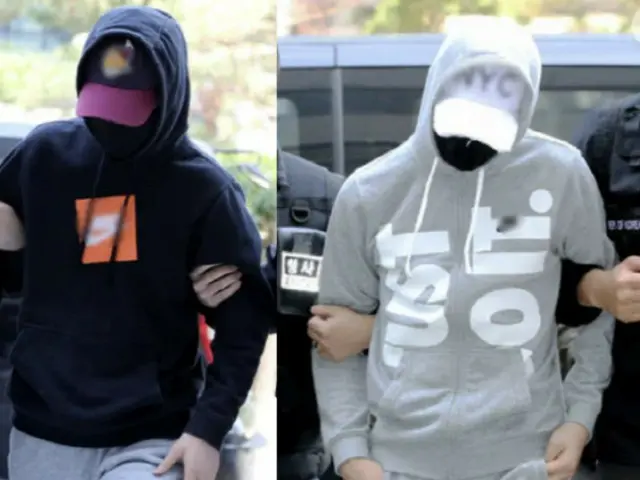The second trial upheld the reduction in the sentences. In the first trial, the court found that "they showed no remorse and committed further crimes," and sentenced Defendant A to seven years in long-term imprisonment and five years in short-term imprisonment, and Defendant B to six years in long-term imprisonment and four years in short-term imprisonment.
A appealed this and was sentenced to four years in long-term imprisonment and three years in short-term imprisonment at the appeal hearing held on May 22nd of the same year.
Neither the prosecution nor A (then 16 years old) appealed the second-instance ruling, and the reduced sentence was upheld.
B appealed the second-instance ruling, but withdrew the appeal after one day. Like A, his sentence was finalized and he is currently out of prison. The incident dates back to 1:00 a.m. on December 23, 2019.
A and B, who were friends, invited C, who attended the same school, to the gym of an apartment in Songdo, Yeonsu-gu, Incheon. The reason why C became the target of their crime was because A and B
The reason given was that C was close to a junior at school who was being bullied by others, but they bought four bottles of shochu and forced C to drink, saying they would "crush you," eventually leaving him unable to move.
When Ms. C lost consciousness after drinking alcohol, they carried her to the 28th floor of the same apartment building, where they decided the order of their assault by playing rock-paper-scissors. However, B was unsuccessful.
They also took photos of Ms. C. They also left the victim unconscious after the crime and went to eat soup in a nearby restaurant.
In the end, Mr. C suffered injuries including a concussion that required three weeks of hospital treatment, and he also suffered a great psychological shock.
The details of the crime, which were written on the National Petition Board, were that C's brother called A and B at 9 p.m. on January 8, 2022, and the recording was recorded.
The recording was reported on MBC's "True Story Investigation Team." In the recording, B said, "At first, I tried to get her drunk and make it consensual, not rape her. I thought drinking alcohol would make me feel good.
But I made him drink too much," and A said, "We thought we were doing it with consent." C's brother then countered, "That's not consent."
Regarding the circumstances leading up to the crime, B said, "I went to the nearest building and had her sleep on the stairs. If I did it here, someone might come, so I went to the top floor.
When C's brother asked what he meant by "here," he answered, "sexual relations." B then said, "We played rock-paper-scissors to decide who would go first, but A was the one who
"It was later because I won," he said, "It was cold and things weren't going well, so I told A, 'I quit,' and 'You do what you want,' and left."
However, A's lawyer argued that the evidence was inadequate because C's brother and others had kidnapped and threatened A and B and asked leading questions.
A's lawyer argued, "The only thing that proves A's guilt is B's statement, and what he said during the abduction is not admissible as evidence," and "A was not drinking at the time, and there was no CCTV footage of A's violence."
However, there was controversy over the police's failure to secure CCTV footage from the apartment building that showed A and his gang committing the crime, and some details about the crime were not provided.
In the end, the first trial found that A had not shown any signs of remorse and had committed further crimes and contacted the victim, making severe punishment inevitable.
A was sentenced to seven years in long-term imprisonment, B to five years in short-term imprisonment, and B to six years in long-term imprisonment and four years in short-term imprisonment.
"The nature and method of the crime were extremely dangerous, bold and shocking," he said, concluding that "at the time, he had only just turned 14 and was a minor (those under 14 are considered children), and his personality had not yet matured."
He said, "He committed the crime without thinking too much about it and without knowing what he was doing," and "He has provided appropriate compensation to most of the victims and reached an amicable agreement," and sentenced him to four years in long-term imprisonment and three years in short-term imprisonment.
A admitted to the charges in the first trial and reached an agreement with C's side, but B denied the crime and only admitted in the second trial.
After the appeal, C's mother said, "The victim has not forgiven the assailant B and wants him to be severely punished.
However, the judge in the second instance thought that B was sincerely remorseful and reduced the sentence significantly from the first instance," he said. "This is clearly contrary to legal principles and is an incorrect application of the law."
2024/05/26 14:02 KST
Copyrights(C) Edaily wowkorea.jp 91

